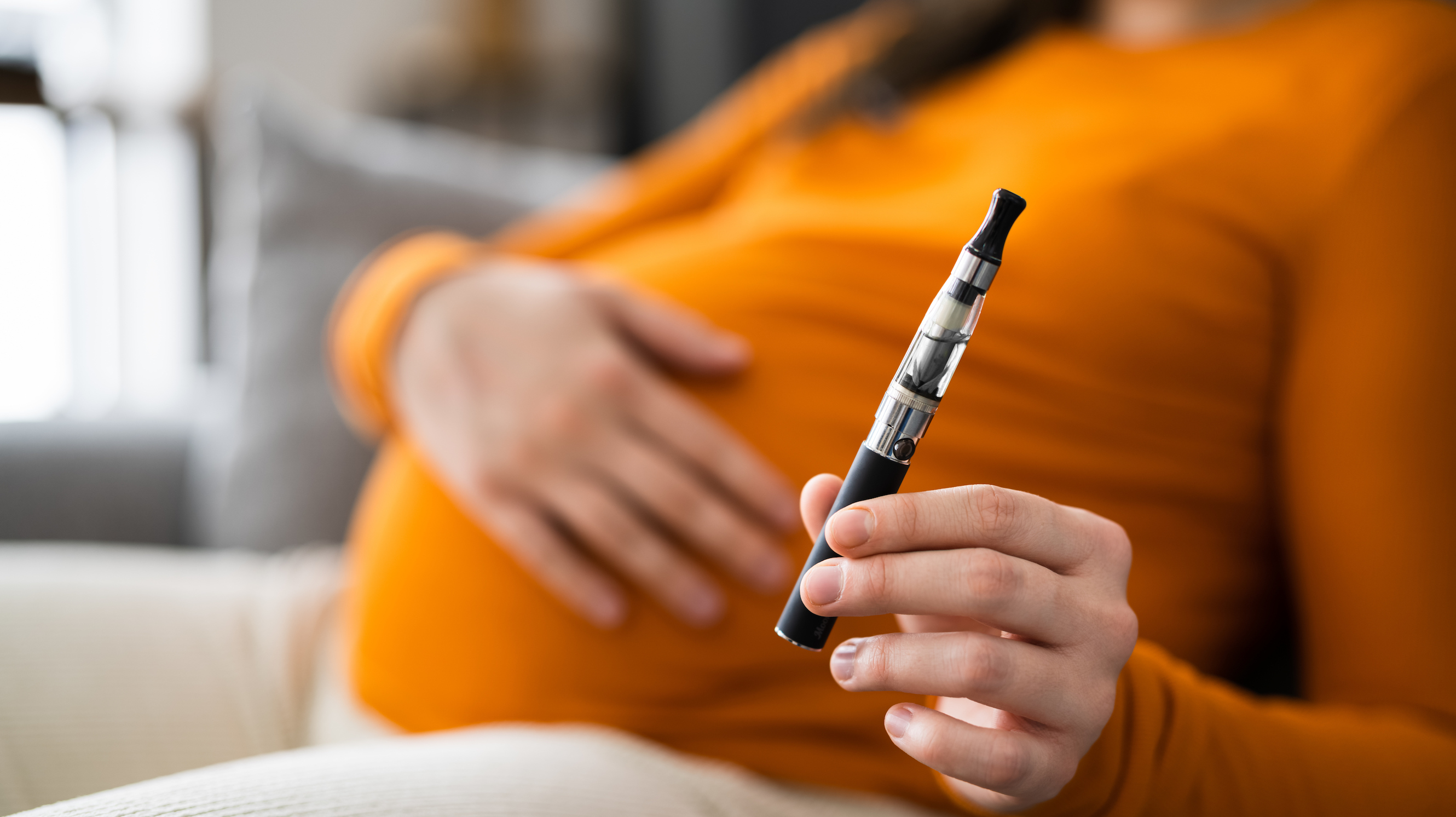No, electronic cigarettes (e-cigarettes or vapes) are not safe alternatives to traditional cigarettes during pregnancy. Using any product containing nicotine poses significant risks to both the pregnant person and the developing fetus.
Why E-Cigarettes Are Unsafe During Pregnancy
Nicotine is the primary concern:

- Fetal Brain Development: Nicotine crosses the placenta easily and can disrupt the development of the fetal brain and nervous system, potentially leading to lasting cognitive and behavioral problems.
- Preterm Birth & Low Birth Weight: Nicotine constricts blood vessels, reducing blood flow and oxygen/nutrient supply to the baby, increasing risks for premature birth and low birth weight.
- Stillbirth and SIDS: Nicotine exposure increases the risk of stillbirth and may elevate the risk of Sudden Infant Death Syndrome (SIDS) after birth.
Other Harmful Substances: E-cigarette aerosol is not just “water vapor.” It typically contains harmful substances besides nicotine, including:
- Ultrafine particles that can be inhaled deeply into the lungs.
- Flavoring chemicals (some linked to respiratory irritation and lung damage).
- Volatile Organic Compounds (VOCs).
- Heavy metals (like lead, nickel, tin).
- Formaldehyde and other carcinogens, particularly when the device overheats.
The full impact of these substances on a developing fetus is still being studied, but known toxins pose inherent risks.
Lack of Regulation and Unknowns: E-cigarette ingredients, designs, and manufacturing standards vary widely. The exact composition of the aerosol you inhale is often unknown, introducing unpredictable dangers.
Doctors’ Advice for Pregnant Individuals
Quit All Nicotine Products: The absolute safest choice is to avoid all tobacco and nicotine products, including cigarettes, e-cigarettes, vapes, chewing tobacco, and nicotine replacement therapy (NRT) unless specifically prescribed and managed by your doctor.
Seek Professional Help to Quit:
- Discuss quitting strategies with your doctor, midwife, or a cessation counselor immediately.
- While quitting cold turkey is ideal, if struggling, some forms of NRT (like patches or gum) might be considered under strict medical supervision. However, the safety and efficacy of NRT during pregnancy is complex and requires a doctor’s evaluation. Never start NRT or switch to vaping without consulting your healthcare provider.
- Evidence-based behavioral counseling is a primary recommended strategy.
Avoid Secondhand Exposure: Protect yourself and your baby from exposure to secondhand smoke or aerosol from both cigarettes and e-cigarettes.
Key Takeaway
There is no safe level of nicotine exposure during pregnancy. E-cigarettes are not a safe alternative to smoking and introduce significant risks to fetal development and pregnancy outcomes. The only safe approach is complete cessation of all nicotine products. Consult your healthcare provider for support and evidence-based quitting strategies tailored to pregnancy.










